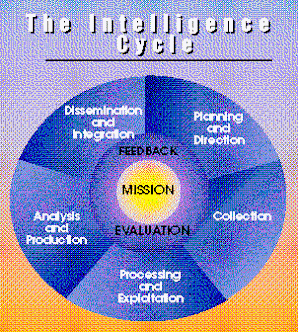Analyst Skills: Effective Writing
 George Orwell’s 5 Rules for Effective Writing
George Orwell’s 5 Rules for Effective Writing
Language is the primary conductor between your brain and the minds of your audience. Ineffective language weakens and distorts ideas. If you want to be understood, if you want your ideas to spread, using effective language must be your top priority. In the modern world of business and politics this is hardly ever the case. In many instances, imprecise language is used intentionally to avoid taking a position and offending various demographics. No wonder it’s hard to make sense of anything!
This is hardly a recent problem, and as George Orwell, the famous novelist, wrote in his 1946 essay, Politics and the English Language, the condition is curable. By following Orwell’s "Five Rules For Effective Writing", you’ll distinguish yourself from competitors and clearly communicate your ideas.
1. Never use a metaphor, simile, or other figure of speech which you are used to seeing in print.
This sounds easy, but in practice is incredibly difficult. Phrases such as toe the line, ride roughshod over, stand shoulder to shoulder with, play into the hands of, an axe to grind, Achilles’ heel, swan song, and hotbed come to mind quickly and feel comforting and melodic. For this exact reason they must be avoided. Common phrases have become so comfortable that they create no emotional response. Take the time to invent fresh, powerful images.
2. Never use a long word where a short one will do.
Long words don’t make you sound intelligent unless used skillfully. In the wrong situation they’ll have the opposite effect, making you sound pretentious and arrogant. They’re also less likely to be understood and more awkward to read. When Hemingway was criticized by Faulkner for his limited word choice he replied: "Poor Faulkner. Does he really think big emotions come from big words? He thinks I don’t know the ten-dollar words. I know them all right. But there are older and simpler and better words, and those are the ones I use."
3. If it is possible to cut a word out, always cut it out.
Great literature is simply language charged with meaning to the utmost possible degree (Ezra Pound). Accordingly, any words that don’t contribute meaning to a passage dilute its power. Less is always better (it's unfortunate that Alexandre Dumas didn't read this before he wrote, or perhaps it was because the French paid by the word not by the thought). Always.
4. Never use the passive where you can use the active.
This one is frequently broken, probably because many people don’t know the difference between active and passive verbs. I didn’t myself until a few months ago. Here is an example that makes it easy to understand: "The man was bitten by the dog. (passive)The dog bit the man. (active).The active is better because it’s shorter and more forceful."
5. Never use a foreign phrase, a scientific word, or a jargon word if you can think of an everyday English equivalent.
This is tricky because much of the writing published on the internet is highly technical. If possible, remain accessible to the average reader. If your audience is highly specialized this is a judgment call. You don’t want to drag on with unnecessary explanation, but try to help people understand what you’re writing about. You want your ideas to spread right?
6. Break any of these rules sooner than saying anything outright barbarous.
This bonus rule is a catch all. Above all, be sure to use common sense.


0 comments:
Post a Comment